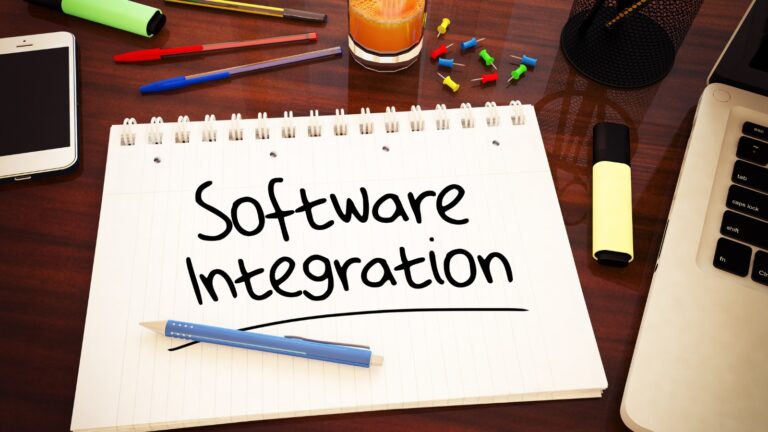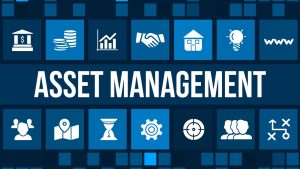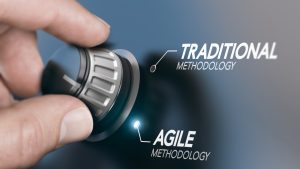Companies that manufacture their products would typically consider what sort of production software is most suitable. They are typically regarded as a category of Enterprise Resource Planning (ERP) whereby it manages, organises, and tracks the production of goods. Since the focus is to help manufacturers, not all businesses have to consider whether production software should be integrated into an ERP system. This blog will act as a guidebook to help you understand whether you should integrate your production software into your ERP system.
What is Production Software?

As the term indicates, production software would ideally benefit the production manager, who is responsible for the entire creation of goods. From managing the workforce to creating budgets and storing inventory, multiple processes and procedures are in place to ensure that goods are made to meet the demand and the relevant quality standards. To help streamline such processes and establish consistency, many adopt a production software. This is also called the Manufacturing Resource Planning or Material Requirement Planning (MRP) solution. Such solutions take over the entire process of creating goods to eliminate errors.
Production software emerged during the 1980s, catering specifically for larger corporations that exclusively had large retail chains. Today, the scope of production software has been extended, with some transitioning to an Enterprise Manufacturing Execution System or an Enterprise Supply Chain Management (ECSM) system. Today, it is also far more accessible even for Small and Medium-sized Enterprises (SMEs). As noted by their names, in addition to controlling the product life, the solutions monitor and streamline factory management or the shipping of goods.
How is this Different from an ERP System?

ERP is a digital solution that manages business processes related to finances, procurement, risk management, project management, supply chain management and more. In other words, an ERP system provides one platform to manage all aspects of a business to increase efficiency and for all teams in different departments to integrate and collaborate. Hence, in short, an ERP system is at the core of broadly enhancing a company’s productivity and performance.
The most significant difference between an EPR and production software is that the latter is exclusive to manufacturing companies, while the former is a general solution that applies to any kind of company. Hence, production software is a specialised solution created to manage the materials and components required for a manufacturing factory. This also makes it a solution that is limited to users that manage production planning and inventory management. It is yet an important solution for manufacturing companies as a key feature of it is inventory forecasting. When production software and ERP are merged, companies can avail a solution that offers a comprehensive view of the organisation. This leads to the production of expert insights that facilitate better decision-making.
Types of Software Integral to Manufacturing

The manufacturing industry is extremely asset-centric and energy-intensive and includes multiple roles and responsibilities. Due to this, multiple solutions have emerged to address each of these needs. Other than MRP, here are four popular software used:
Inventory Management Software
To ensure that customers are satisfied and to eliminate waste, manufacturers need to stay on top of their inventory. This form of software is used to provide managers with the ability to manage their inventory across multiple manufacturing plants. Features such as stock level management, procurement management, supplier management and forecasts on consumer and market trends that would affect inventory are assessed.
Supply Chain Management Software
Supply chain management (SCM) handles the distribution of goods from start to end. Hence, from delivering raw materials to the manufacturers to sending the finished product to the consumer, the supply chain is a complicated network for manufacturers to keep up with. Hence, SCM software that can manage orders, inventory, shipping, planning and forecasting, warranties and returns is essential.
Customer Relationship Software
Manufacturers today strive to be customer-centric. Hence, manufacturers must know what consumers want in advance to produce and have them ready. Adopting lean manufacturing and infusing technology is central to meeting such demands. Customer Relationship Software (CRM), in this respect, allows businesses to analyse consumer behaviour in real time. They can easily manage a customer database, sales pipeline, email marketing, sales reporting and the salesforce.
Human Resource Management Software
No matter how digitalised a manufacturing company is, its human workforce will always have a special place within the factory. Hence, while a CRM prioritises the customer, a Human Resource Management (HRM) is to organise everything related to the company’s employees. Hence, from managing their details to effectively depositing their right salaries, an HRM is important to keep track of attendance and facilitate employee satisfaction surveys to streamline recruitment and monitor employee performance.
One Solution That Incorporates All of the Above: ERP
The number of finances and training put into familiarising each of the systems mentioned above can be complicated. This is why it is recommended to simply adopt one solution that caters to a broader range of needs. ERP, therefore, becomes the most flexible solution that can be customised according to the needs of the organisation. A typical ERP solution may include modules that control customer relationships, employee management, supply chain management, inventory, financial budgets and related functions. Looking for a world-class ERP solution would be a more cost-effective and well-rounded solution.
Should You Then Also Integrate Production Software into Your ERP?
Anyone that has been wondering whether they should purchase a solution that integrates ERP and production software may have heard that what is best for them would depend on multiple factors. Here are some important points to keep in mind in this respect:
What Are Your Company Objectives?
At the inception of purchasing any solution, it is helpful for a company to consider its goals and objectives. Manufacturing companies only focusing on their processes may find something like an MRP system to be the most beneficial for them. However, if the company, on the other hand, is more business-centric, requiring them to also look at other aspects, the advantages of an MRP system would be limited. In contrast, even if a company was centred on the manufacturing process, organisations should have the space to make flexible changes that meet their changing requirements. In that sense, implementing a stand-alone MRP solution may not be the most feasible.
Collaboration and On-Boarding Experience
If two solutions are implemented, it would require anyone who joins the company to undergo different forms of training to familiarise themselves with the systems. However, where there is only one solution that addresses all responsibilities of the organisation, it leaves less room for employees to make errors. Hence, where there is an integrated system, it makes it easy for employees to collaborate and get work done much faster and easier. However, there are two systems and the chances of teams being isolated become possible. Thus, when one team requires information from the other, the entire manufacturing process slows down.
What is More Cost-Effective?
Since production software like MRP is more specialised, it is comparatively cheaper than an ERP, which on the other hand, is more costly since it offers more features. However, consider the cost of handling two different stand-alone solutions. It would be much more expensive to manage and maintain them than to integrate them. This means while it may not be that cheap, it is more financially sustainable in the long term. Whether it is an SME or larger corporation considering whether they need to invest in an integrated system, they would find it more cost-effective than purchasing two different solutions.
A Holistic Solution for Manufacturers
An integrated ERP system offers a holistic solution for manufacturers who can easily manage their manufacturing operations whilst looking at business processes. The best part is that since data will henceforth be processed into one integrated system, each company department can receive the most reliable insights and make intelligent decisions. Connect with the best ERP solution vendor to customise the most efficient software system.






